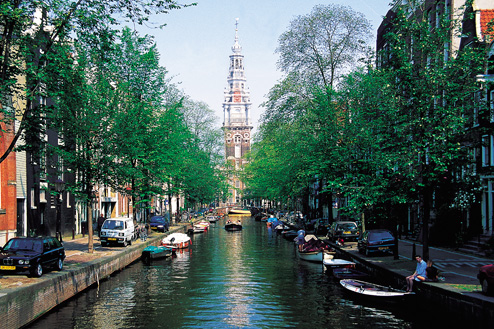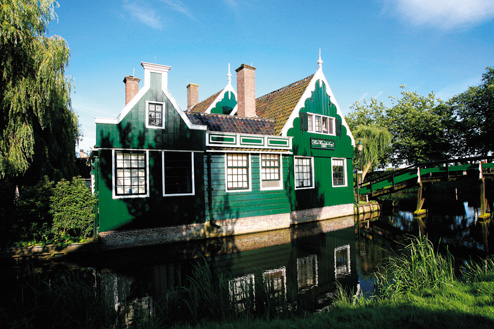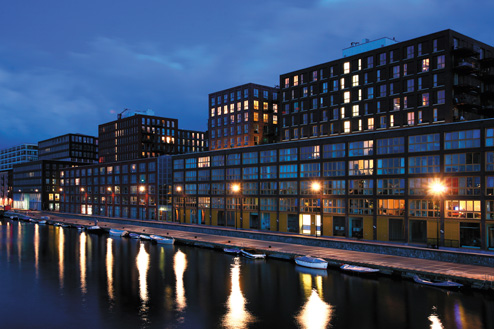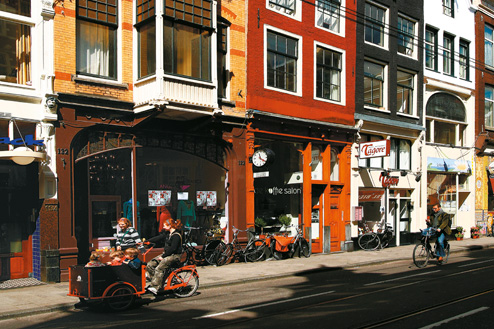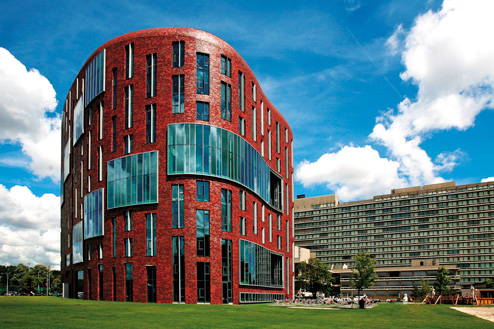Maternity
The Netherlands has a very good record in prenatal care and safe childbirth. Traditionally it is commonplace for Dutch women to give birth at home. One-third of all births in Holland are home births, but you do have other delivery options.
The majority of Dutch women are usually cared for by a midwife during pregnancy and childbirth. Gynaecologists or obstetricians are specialists and are usually only called in for women who have (or expect) complications in pregnancy or childbirth. Gynaecologists will also care for women who are expecting a normal delivery, but you need to ask your GP to help you arrange this. Don’t forget to check with your insurance provider to see what options are covered under your policy. You can choose either to have your child with a midwife in a hospital (poliklinische bevalling), at home with a midwife (thuisbevalling), or in a hospital with a gynaecologist. Many women choose to have their child with a midwife at the hospital, which means they are in the hospital only for the delivery, and if they don’t have complications can return home for the post-natal care. A woman may have her partner (or any other person she wishes) with her during delivery in the hospital. Midwives can be found either by referral from your GP or by contacting them directly – see the Gouden Gids (yellow pages) under Verloskundigen. You should try to interview midwives early on in your pregnancy as many are booked up and some do not attend home births.
Women in Holland tend to have their children naturally, with little medication. If you would like pain relief during your delivery, you must discuss this with your midwife or gynaecologist early in the pregnancy. Epidurals and Demerol are available in most hospitals but may not be available 24 hours a day. You should consult with your midwife or gynaecologist about this matter.
In many countries elective caesareans have become quite commonplace, but this isn’t the case in Holland. A caesarean is normally only performed under emergency circumstances or in special cases. There are a number of pregnancy support groups and agencies in the Netherlands; you can get information about these from your GP or midwife, or you can contact ACCESS (4233217, www.access-nl.org). The birth must be registered at the city hall (gemeentehuis) within 48 hours, where a birth certificate will be arranged - see Birth Certificate & Registration. If you would like more information about pregnancy and childbirth in the Netherlands, ACCESS also regularly runs a course in English on ‘Having a Baby in Holland’.
The majority of Dutch women are usually cared for by a midwife during pregnancy and childbirth. Gynaecologists or obstetricians are specialists and are usually only called in for women who have (or expect) complications in pregnancy or childbirth. Gynaecologists will also care for women who are expecting a normal delivery, but you need to ask your GP to help you arrange this. Don’t forget to check with your insurance provider to see what options are covered under your policy. You can choose either to have your child with a midwife in a hospital (poliklinische bevalling), at home with a midwife (thuisbevalling), or in a hospital with a gynaecologist. Many women choose to have their child with a midwife at the hospital, which means they are in the hospital only for the delivery, and if they don’t have complications can return home for the post-natal care. A woman may have her partner (or any other person she wishes) with her during delivery in the hospital. Midwives can be found either by referral from your GP or by contacting them directly – see the Gouden Gids (yellow pages) under Verloskundigen. You should try to interview midwives early on in your pregnancy as many are booked up and some do not attend home births.
Women in Holland tend to have their children naturally, with little medication. If you would like pain relief during your delivery, you must discuss this with your midwife or gynaecologist early in the pregnancy. Epidurals and Demerol are available in most hospitals but may not be available 24 hours a day. You should consult with your midwife or gynaecologist about this matter.
In many countries elective caesareans have become quite commonplace, but this isn’t the case in Holland. A caesarean is normally only performed under emergency circumstances or in special cases. There are a number of pregnancy support groups and agencies in the Netherlands; you can get information about these from your GP or midwife, or you can contact ACCESS (4233217, www.access-nl.org). The birth must be registered at the city hall (gemeentehuis) within 48 hours, where a birth certificate will be arranged - see Birth Certificate & Registration. If you would like more information about pregnancy and childbirth in the Netherlands, ACCESS also regularly runs a course in English on ‘Having a Baby in Holland’.

